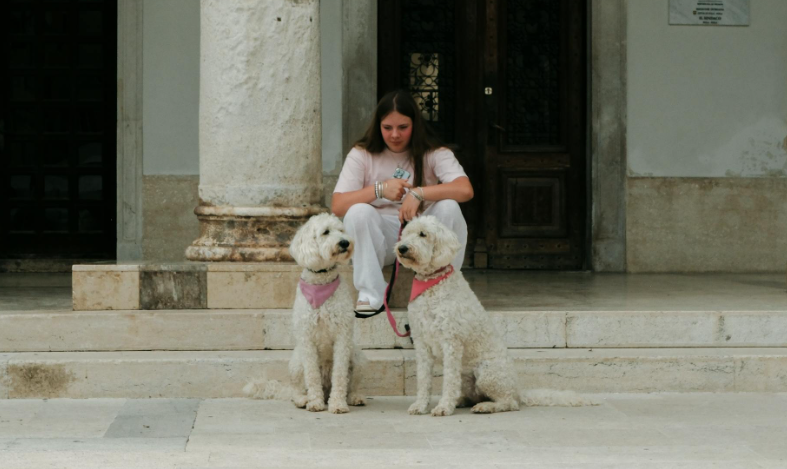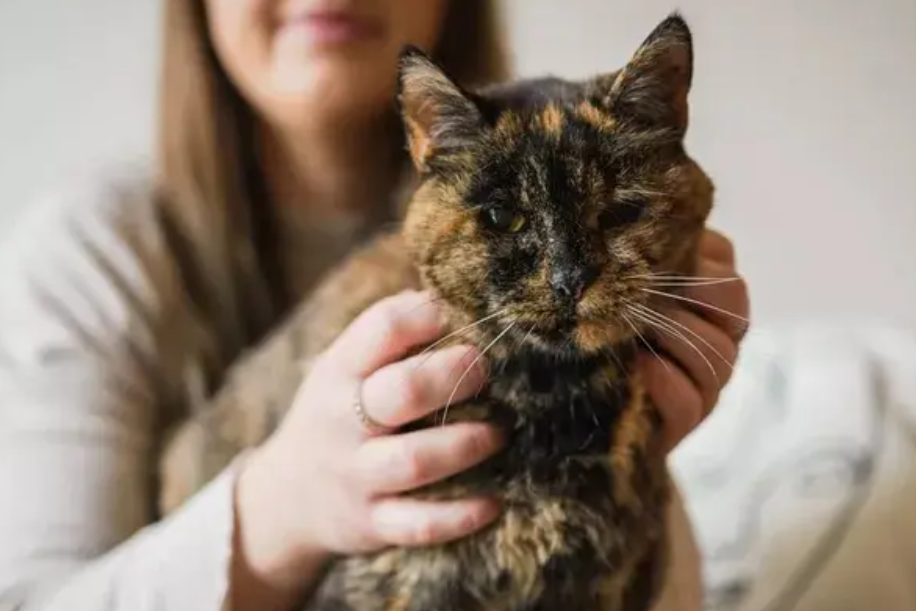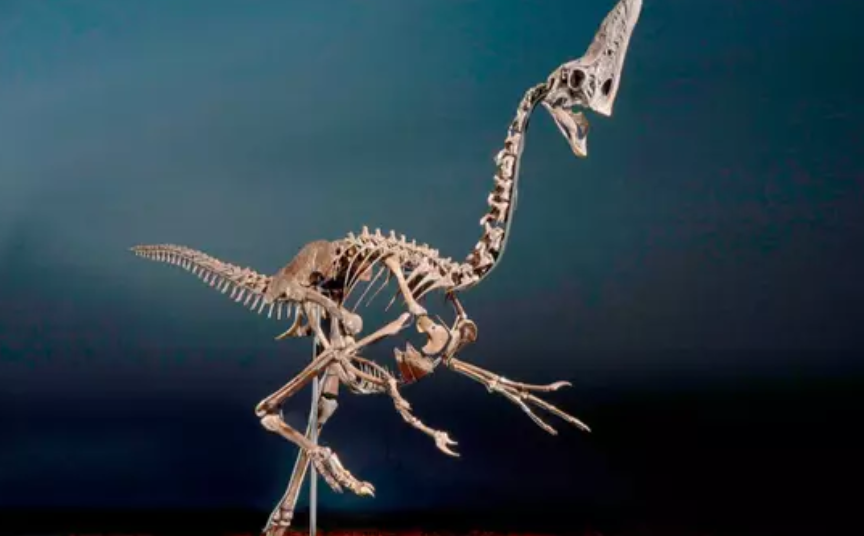Fossil Find Confirms Vegetarian Diet of Long-Necked Dinosaurs
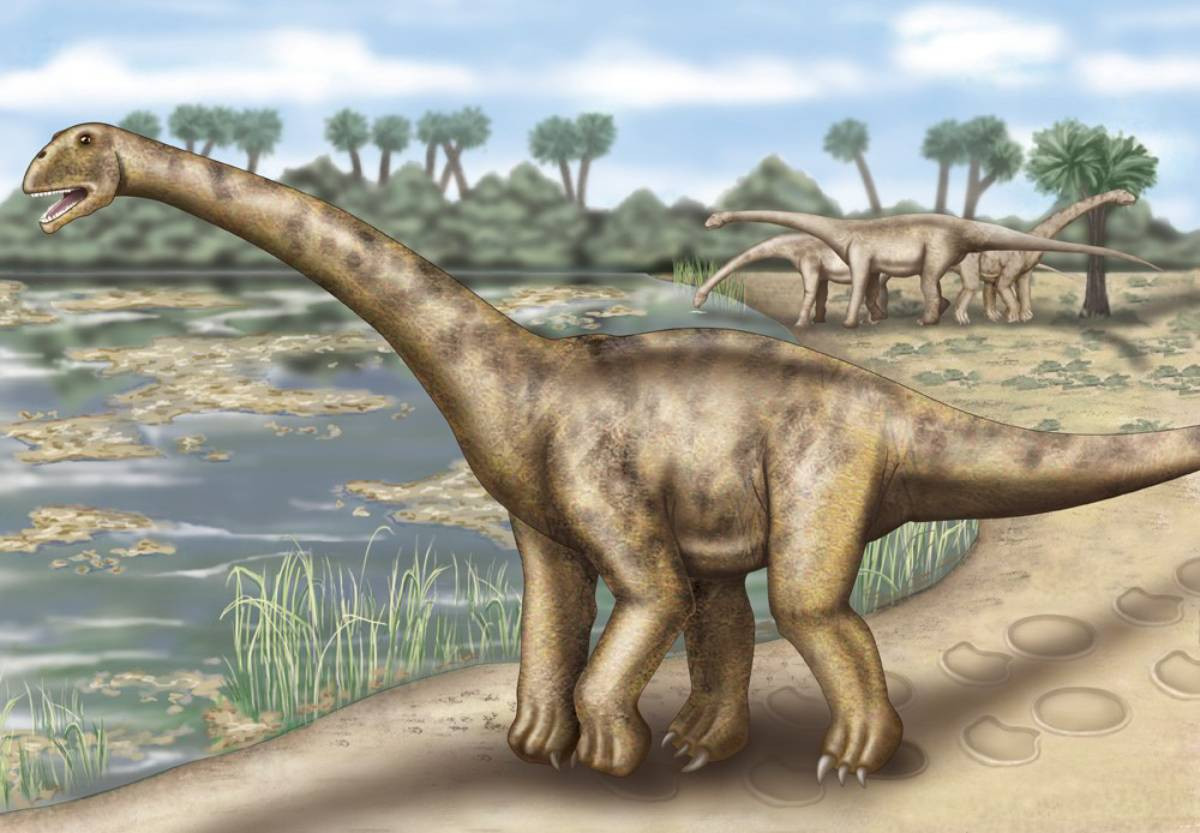
©️Carin L. Cain / AAAS / Science
They weren’t just long-necked legends, they were leafy-lunch lovers too.
A groundbreaking fossil discovery in Australia has finally confirmed what paleontologists long suspected: the vegetarian diet of long-necked dinosaurs. Inside a 95-million-year-old sauropod skeleton, researchers found fossilized plant bits, basically, the dino version of a salad bar.
This is the first direct fossil proof of a plant-based diet in these iconic giants. It’s reshaping how we understand their daily lives, from what they ate to how they thrived.
Dinosaur Dig Reveals an Unexpected Clue
In 2017, a team from the Australian Age of Dinosaurs Museum uncovered the fossilized remains of a juvenile Diamantinasaurus matildae, nicknamed Judy. The dig took place in Queensland’s Winton Formation.
Near Judy’s pelvis, they found something remarkable: a tight cluster of fossilized plant matter.
Dr. Stephen Poropat, who led the study, called it “the smoking gun, or the steaming guts.” These gut contents, known as cololites, were so well preserved that they still contained visible leaves.
The team searched the area and found no other plant remains. That helped confirm the material really came from Judy’s digestive system, not from the surrounding ground.
What the Plants Reveal About Long-Necked Dinosaurs’ Vegetarian Diet
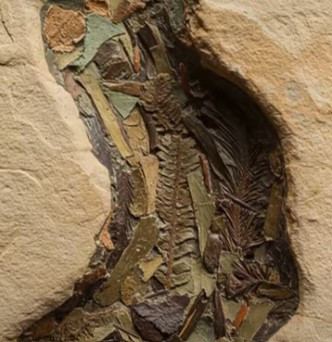
Chemical tests showed traces from multiple plant families, from conifers to flowering plants, which likely grew in Judy’s ancient environment. These findings confirm that sauropods ate various plants to fuel their huge bodies.
But it’s not just what they ate that became clearer; it’s also how. The leaves showed no sign of being chewed. According to Dr. Poropat, “sauropods didn’t chew at all.” They swallowed food whole and relied on gut bacteria to break it down over time.
This grab-and-gulp approach fits what many experts have guessed. Big herbivores couldn’t afford to be picky.
“If you’re small, you can be picky,”
said paleontologist P. Martin Sander.
“If you’re very large, you can’t be specific, you just wolf it down.”
A Rare and Historic Discovery
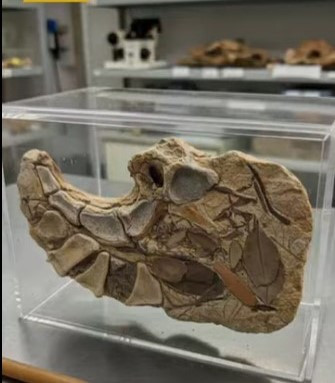
Fossilized stomach contents are rare, especially in herbivores like sauropods. Their leafy diets usually don’t fossilize well. That’s what makes Judy so special.
While this is just one case, it’s the first solid fossil proof that long-necked dinosaurs were true vegetarians.
It also opens the door to more research. Future studies could explore how this plant-based diet affected sauropod evolution, migration, and extinction.
For now, we have a clear answer to a long-standing mystery: these gentle giants weren’t hunters — they were salad lovers.
You might also want to read: The One-in-a-Million Tale of a Donkey Foal With Two Mothers
